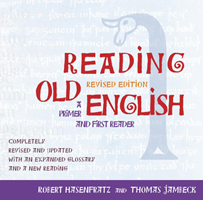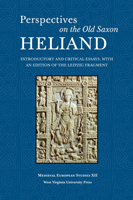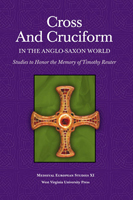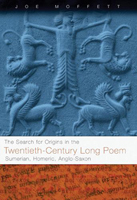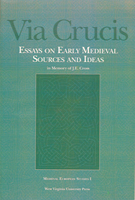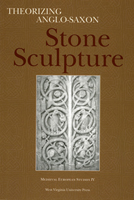Edited by
James E. Cathey
2002
360pp
PB 978-0-937058-64-0
$44.95
PDF 978-1-933202-82-2
$43.99
PDF (120 days)
$20.00
Summary
James E. Cathey's Hêliand: Text and Commentary is a simply unique, wonderfully encompassing, and helpful text, and nothing quite like it exists anywhere in the world. The commentary portion of the book consists of an interweaving of interpretation and philological consideration. This work presents the reader with explanatory commentary that encompasses both the scientific and the poetic and treats them both with equal felicity. The volume also contains something that is exceptionally valuable and cannot be found in English: a compact and serviceable grammar of Old Saxon and an appended glossary that defines all of the vocabulary found in this edited version of the Hêliand.
Contents
- Preface
- Introduction
- The Historical Setting of the Hêliand
- The Saxons
- The Early Missions
- The Arian and Moslem Threats
- The English Mission
- Charlemagne and Europe
- Charlemagne and the Saxons
- Consolidation of Power
- Semantic Hurdles to the Task of Conversion
- The Work
- Hêliand Verse
- The Dating of the Hêliand and the Prefatio
- The Manuscripts
- The Fitten
- A Comparison of the 'M' vs 'C' Manuscripts
- Excerpts from the text of the Hêliand
- Introduction
- Elizabeth's Child
- The Birth of John
- Mary's Child
- The Birth of Jesus
- Signs of Jesus' Birth
- Jesus in the Temple
- The Three Wise Men
- Herod's Threat
- The Flight to Egypt
- John the Baptist
- The Baptism of Christ
- The Tempting of Christ
- Jesus Returns to Galilee
- The Sermon on the Mount
- Admonitions
- Hearing the Sermon
- Swearing Oaths
- The Lord's Prayer
- Lilies of the Field
- Pearls before Swine
- Bad Tree - Bad Fruit
- The Narrow Gate
- A House upon Sand
- Lambs among Wolves
- Entering Heaven
- Water to Wine
- Reward and Punishment
- Raising the Dead
- Calming the Storm
- The Sower and the Seed
- Interpretation
- The Wheat in the Field
- Herodias' Daughter Dances
- The Death of John
- Jesus Walks on Water
- Saint Peter's Keys
- The Transfiguration
- Fishing for Coins
- The Rich Man and Lazarus
- Workers in the Vineyard
- Going to Jerusalem
- The Blind Men
- Entering Jerusalem
- A Thane's Duty
- Judgment Day
- Raising Lazarus
- Jesus as Threat
- Apocalypse
- Washing Feet
- Jesus Identifies the Betrayer
- Jesus in Gethsemane
- The Capture of Christ
- Peter Denies His Lord
- The Fate of a Bad Thane
- Pilate
- The Death of Judas
- Christ before Pilate
- Christ before Herod
- The Second Hearing before Pilate
- Pilate's Offer
- Satan's Attempt and Pilate's Wife
- Pilate's Soldiers Take Jesus
- The Crucifixion
- The Death of Jesus
- The Burial
- The Resurrection
- Commentary to the Readings
- References
- A Brief Outline of Old Saxon Grammar
- The Sound Systems of Primitive Germanic and Old Saxon
- Old Saxon Reflexes of Germanic Vowels
- Strong Noun Declension
- Weak Noun Declension
- Pronouns
- Adjective Declensions
- Comparison of Adjectives
- Adverbs
- Numerals
- Verbal Types
- Verb Conjugations
- Glossary
Author
James E. Cathey is Professor Emeritus of German and Scandinavian studies at the University of Massachusetts Amherst. His research interests include Germanic linguistics, Scandinavian languages, Finnish, and Old Saxon. He teaches several classes in these areas at the university, along with Swedish.
Reviews
"As someone who has taught the Hêliand and had to go to unheard of lengths of photocopying to bring together diverse and difficult to find texts, I cannot tell you how genuinely helpful Cathey's work will be. It will be the version for students in North America, and quite probably abroad as well."
G. Ronald Murphy, Georgetown University
"...a useful addition to texts available for budding philologists."
Tom Shippey, The Times Literary Supplement
"As a means of introducing students to this fascinating world and challenging text, Cathey's study should prove to be valuable, and one may hope that its publication will indeed contribute to growth in the interest of English speakers for the Old Saxon world."
John M. Jeep, Speculum









